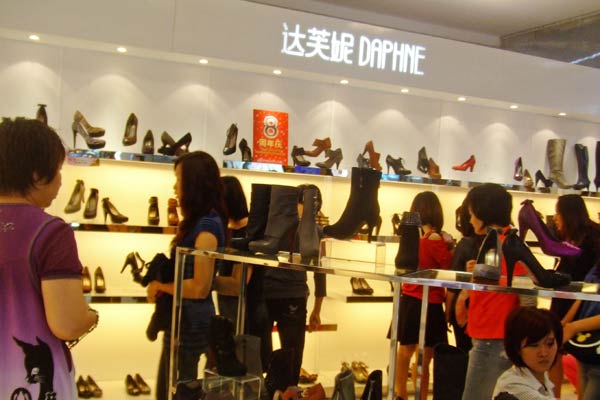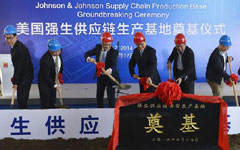 |
|
An outlet of Daphne in Shantou, Guangdong province. Daphne started as a family-owned shoe manufacturer, producing mainly for large US retailers such as Wal-Mart. CHINA DAILY |
The transition of the Chinese economy is reflected by the growing appetite for consumer products, which will mean not just more imports and more brands but also increasingly heated competition in the management of the supply chain, according to Edwin Keh from the Wharton School of the University of Pennsylvania.
In a recent interview in Beijing, where he was guest lecturer teaching supply chain management at the Cheung Kong Graduate School of Business, Keh also said high demand volatility can easily lead to an excess inventory.
|
 Edwin Keh. CHINA DAILY
|
"The typical supply chain today is agile, intelligent, transparent, and shorter than before," he said. "Managers will have to come up with accurate demand forecasts to cope with the rising volatility in demand."
He said the traditional supply chain, namely that of the past three to four decades, was mainly to serve the "made in the East" and "consume in the West" scenario.
With the growing weight of the Chinese market, the global supply chain is no longer the same. The key in supply chain management is increasingly how to serve the market - the market just anywhere.
One feature of the change is the direct connection with the consumer, as the traditional business-to-business focus shifts to the business-to-consumer type. Selling products directly to customers, especially the ubiquitous "e-customers", has become vital, he said.
The global marketplace requires "multi-country and multi-market capabilities", he said, to make anywhere and sell everywhere.
Speed is more important. The traditional supply chain is slow, taking months to produce and weeks to ship.
|
 |
 |
Speed can help companies cut down inventory risks, improve consumer experience, and thus resist market turbulence and keep up with the industry's rate of innovation. Products that fail to be delivered to consumers will quickly become obsolete.
In the meantime, the China market will demonstrate some new features.
The Chinese economy is shifting from an export type to a domestic consumption type. China was once mainly the workshop of the world but now has its own huge domestic market.
Having grown 9 to 10 percent year-on-year for the past 30-some years, China's growth rate has slowed and fallen in the range of 7 to 7.5 percent.
But since it has grown into "a much larger pie", it will hold a greater influence on global demand.
China will have to learn to manage its outbound and inbound goods and services more skillfully, just to create more value from its supply chain, Keh said.
The country will also have to learn to contribute brands, as much as it contributes products, to the world market.
"To copy is part of the development process," said Keh.
He took the Daphne brand of Hong Kong-based Daphne International Holding as an example of how a contract manufacturer could develop its own retail brand.
Daphne started as a family-owned shoe manufacturer, producing mainly for large US retailers such as Wal-Mart. In order to use up excess materials and idle production capacity during the low season, the owner started making and selling shoes in China under the company's own brand.
"It turned out to be a success," said Keh. "With the right supply to the right market, Daphne became an accidental retailer."
